 W
WAndries Bicker was a wealthy Dutch merchant in Russia, a member of the vroedschap, the leader of the Arminians, an administrator of the VOC, representative of the States-General of the Netherlands and colonel in the Civic guard. He controlled the city's politics in close cooperation with his uncle Jacob Dircksz de Graeff and his brother Cornelis Bicker.
 W
WGeneral at Sea Robert Blake was an important naval commander of the Commonwealth of England and one of the most famous English admirals of the 17th century. His successes have been considered to have "never been excelled, not even by Nelson" according to one biographer. Blake is recognised as the chief founder of England's naval supremacy, a dominance subsequently inherited by the British Royal Navy into the early 20th century. Despite this, due to deliberate attempts to expunge the Parliamentarians from history following the Restoration, Blake's achievements tend to remain unrecognized.
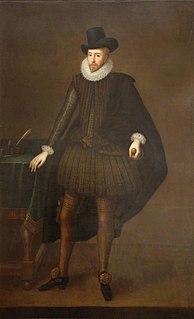 W
WBaptist Hicks, 1st Viscount Campden was an English merchant and politician who sat in the House of Commons between 1621 and 1628. King James I knighted Hicks in 1603 and in 1620 he was created a baronet.
 W
WHumphrey Chetham was an English textile merchant, financier and philanthropist, responsible for the creation of Chetham's Hospital and Chetham's Library, the oldest public library in the English-speaking world.
 W
WSir Josiah Child, 1st Baronet,, was an English economist, merchant and politician. He was an economist proponent of mercantilism and governor of the East India Company. He led the company in the Anglo-Mughal War.
 W
WJohn Delbridge was an English merchant from Devon who was elected six times as a Member of Parliament.
 W
WJohn Fowke was an English merchant and politician. He served as a Sheriff of London for 1644 and Lord Mayor of London for 1652.
 W
WSir Thomas Freke was an English merchant adventurer and politician who sat in the House of Commons at various times between 1584 and 1626.
 W
WLouis De Geer was a Dutch-Swedish entrepreneur, banker, industrialist and slave trader, who was part of the prominent De Geer family. A pioneer of foreign direct investment in the early modern period, De Geer is considered to be both the father of Swedish industry for introducing Wallonian blast furnaces to Sweden and the father of the Swedish slave trade for pioneering Sweden's involvement in the Atlantic slave trade. Furnaces owned by De Geer produced cannons for German Protestants and the Dutch navy and the Dutch East and West India companies.
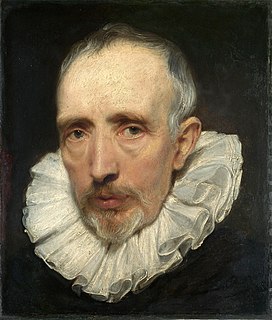 W
WCornelis van der Geest was a spice merchant from Antwerp, who used his wealth to support the Antwerp artists and to establish his art collection. He was also the dean of the haberdashers guild.
 W
WAletta Hanemans (1606–1653), was a grain merchant's daughter from Zwolle, the Netherlands, who became the brewer of the Hoeffijser in Haarlem. She is best known today for her marriage portrait by Frans Hals, painted when she married the brewer, magistrate, and later mayor of Haarlem, Jacob Pietersz Olycan in 1624.
 W
WJacob J. Hinlopen lived in a house with Hinlopen in the gable, now at 155 Nieuwendijk. He traded in cloth and Indian wares. In 1602 he was co-founder of the Dutch East India Company in Enkhuizen, his descendants inherited very old stocks. He also was the first person of Flemish origin, that in 1617 obtained a seat in the City Council.
 W
WStephen Hopkins was baptized "the last of April 1581" and was a passenger on the Mayflower in 1620, one of 41 signatories of the Mayflower Compact, and an assistant to the governor of Plymouth Colony through 1636. He worked as a tanner and merchant and was recruited by the Company of Merchant Adventurers of London to provide the governance for the colony and to assist with the colony's ventures. He was the only Mayflower passenger with prior New World experience, having been shipwrecked in Bermuda in 1609 and arriving at Jamestown, Virginia in May 1610. Hopkins left Jamestown in 1614 and returned to England.
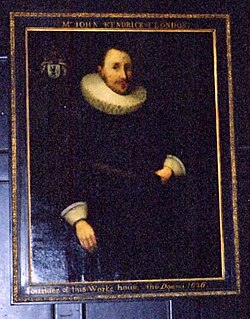 W
WJohn Kendrick was a prosperous English cloth merchant and patron of the towns of Reading and Newbury in Berkshire.
 W
WWilliam Kiffin (1616–1701), sometimes spelled William Kiffen, was a seventeenth-century English Baptist minister. He was also a successful merchant in the woollen trade.
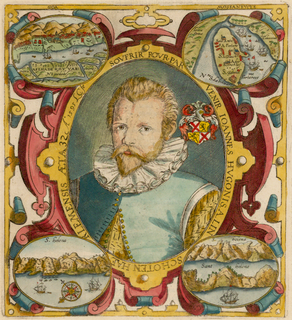 W
WJan Huygen van Linschoten was a Dutch merchant, trader and historian.
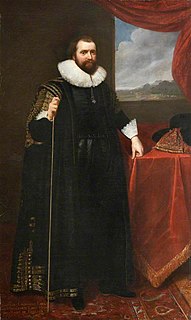 W
WLionel Cranfield, 1st Earl of Middlesex was an English merchant and politician. He sat in the House of Commons between 1614 and 1622 when he was raised to the peerage as Baron Cranfield.
 W
WJohn Morgan was a Welsh merchant, sheriff and MP.
 W
WSir Dudley North was an English merchant, politician and economist, a writer on free trade.
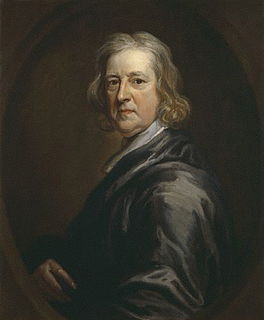 W
WThomas Papillon was an English merchant and politician, an influential figure in the City of London for half a century. He served as a Commissioner for the Victualling of the Navy from 1689 to 1699.
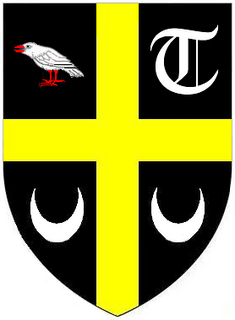 W
WJonathan I Rashleigh, of Menabilly, near Fowey in Cornwall, was an English shipping-merchant, Member of Parliament for Fowey in 1614, 1621, 1625, April 1640 and November 1640, and 1661 and served as Sheriff of Cornwall in 1627. He supported the Royalist cause during the Civil War.
 W
WKiliaen van Rensselaer was a Dutch diamond and pearl merchant from Amsterdam who was one of the founders and directors of the Dutch West India Company, being instrumental in the establishment of New Netherland.
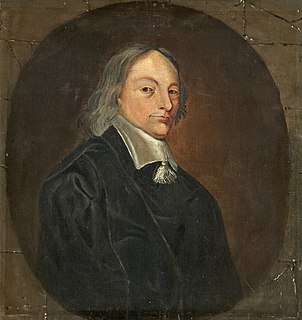 W
WSir Thomas Rich, 1st Baronet was an English merchant and politician who sat in House of Commons in 1660. He established Sir Thomas Rich's School, a grammar school.
 W
WSir Lewes Roberts, also Captain Lewis Roberts (1596–1641), was a British merchant with the Levant Company and writer.
 W
WJosé or Joseph Penso de la Vega, best known as Josseph de la Vega, was a Sephardi Jewish merchant in diamonds, financial expert, moral philosopher and poet, residing in 17th century Amsterdam. He became famous for his masterpiece Confusion of Confusions. Vega's work is the first study written about the Amsterdam Stock Exchange and its participants, the shareholders. In a stilted style he describes the whole gamut, running from options, futures contracts, margin buying, to bull and bear conspiracies, even some form of stock-index trading. The publication of Confusion de Confusiones helped lay the foundations for modern fields of technical analysis and behavioral finance.
 W
WSir Patience Ward or Warde (1629–1696) was an English merchant and early Whig politician. He was elected Lord Mayor of London in 1680, a period when the City of London was in conflict with the Crown.
 W
WJohn Whitson was an English merchant and politician who sat in the House of Commons at various times between 1605 and 1626. He also founded The Red Maid's School.